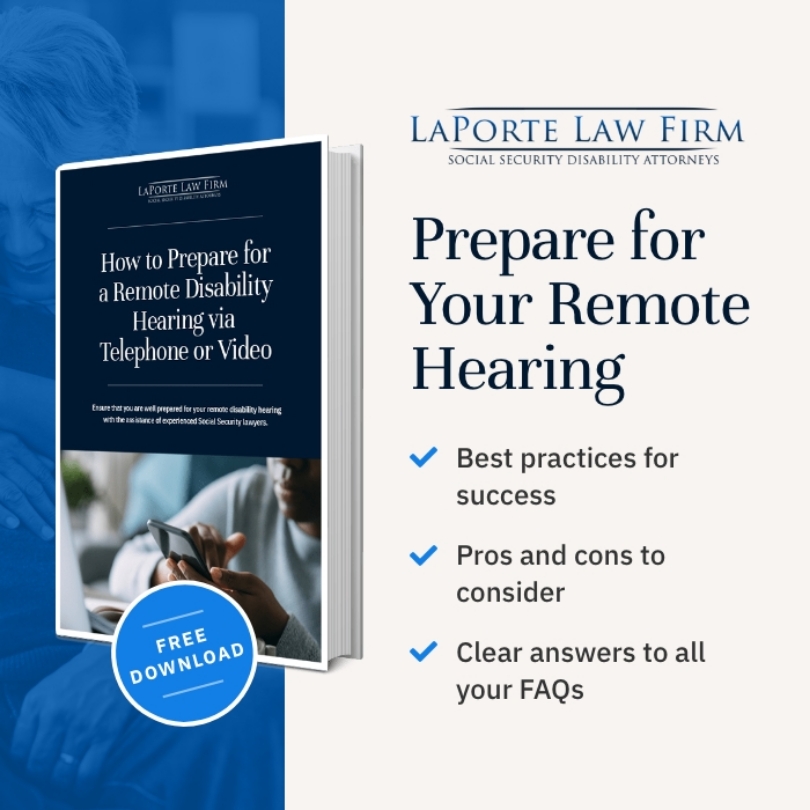
On November 15, 2018, the Social Security Administration (SSA) proposed a new rule that would affect your right to an in-person hearing before an Administrative Law Judge (ALJ). Under the current rules, SSA policy gives you the right to attend your hearing in person. Specifically, you are given the option to opt out of video teleconference hearings by submitting a written objection. If the objection is submitted, you have the right to appear before the ALJ at an in-person hearing.
The new proposed rule would not allow you to choose whether or not you would like an in-person hearing. The proposed rule, “Setting the Manner for the Appearance of Parties and Witnesses at a Hearing” will give the SSA the power to decide if a hearing before an ALJ is in-person or by a video teleconference system. The SSA can even decide to conduct a hearing by telephone instead of video teleconference if the video teleconference system is not working, or if there are any other “extraordinary circumstances” that would require a telephonic hearing.
The SSA believes this new rule will decrease the total number of cases pending before an ALJ and will reduce the discrepancies in wait times among the hearing offices. They believe that the video teleconference system will save money and increase the administration’s efficiency. According to SSA, for the past 20 years, the SSA experimented with the use of video teleconference systems, and has determined that video teleconferencing has improved case processing times, reduced backlogged hearing requests, and reduces ALJ travel.
Not everyone is in favor of this proposed rule. Those who are opposed to the rule believe that it will deprive millions of Americans of their constitutional right to an in-person hearing. They believe that video hearings should only be used when they are chosen by the individual because he or she believes it is the best way to present evidence of their disability and not because SSA mandated it.
The organizations and advocates against the proposed rule also believe that the video teleconference hearings are less fair and may be less efficient, stating that SSA failed to demonstrate that remote hearings that use video teleconferencing are more efficient or reduce processing times. A study in 2018 of hearing office workloads showed that 3 of the 8 hearing offices with the longest average processing times are offices that perform nearly all of their hearings via video teleconference. Those opposed also express concern that video conference systems are not advanced enough to consistently provide good video and audio quality. Even if the quality of the video was good enough, hearings conducted via video are always going to be different than in-person hearings.
As of January 14, 2019, the proposed rule is now closed to public comment. If this proposed rule is ultimately adopted by SSA, it will likely be challenged in a lawsuit against the SSA both in individual cases and in class actions. We will continue to monitor this new proposed rule to and monitor its impact on your right to an in-person hearing.




